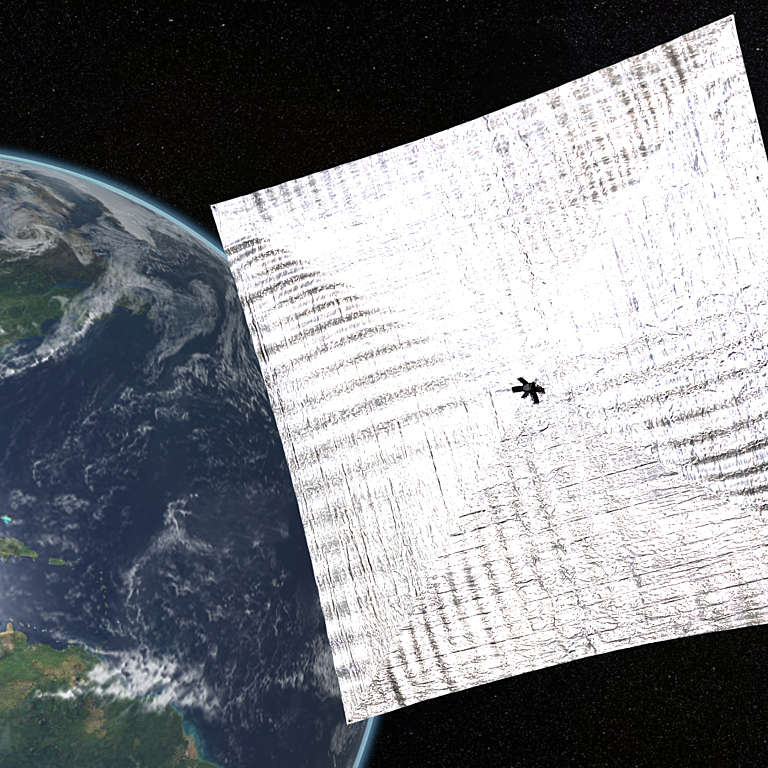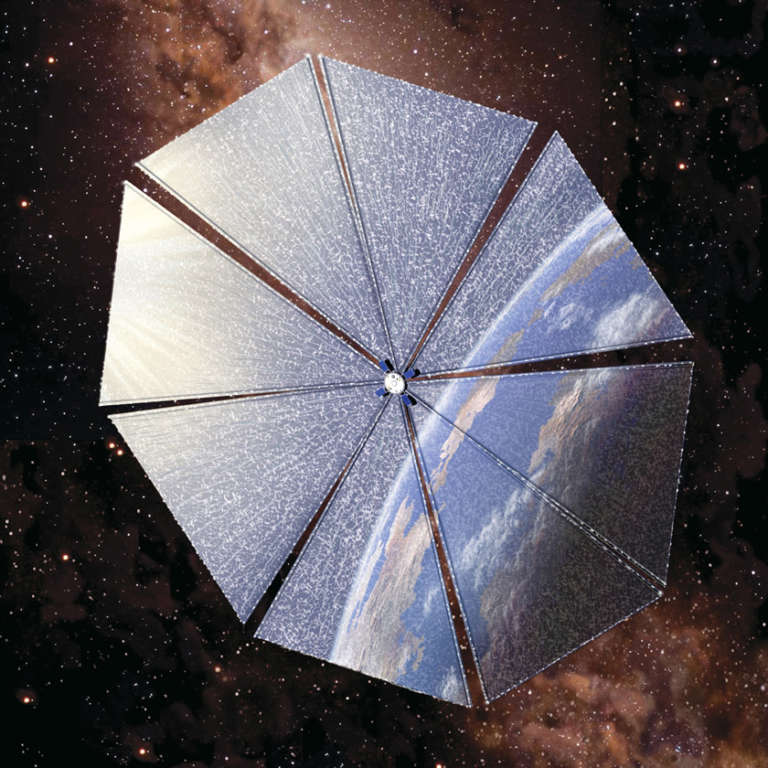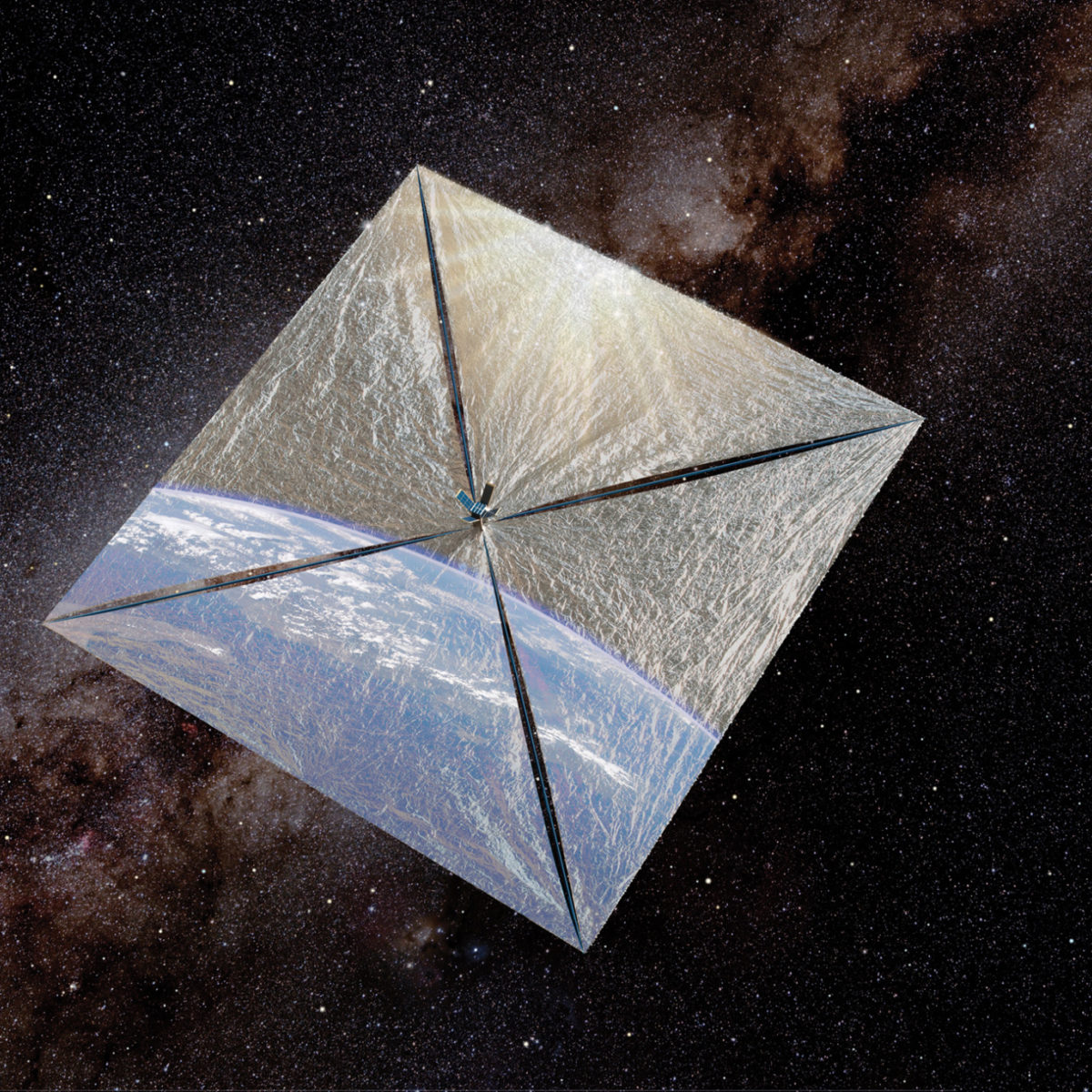All
All
Stories, updates, insights, and original analysis from The Planetary Society.
LightSail Garners News Headlines
The Planetary Society's new solar sail project -- LightSail -- has generated headlines and hundreds of news stories since it was announced on Monday.
LightSail Featured on NPR's Science Friday
Our Executive Director Lou Friedman joins host Ira Flatow on NPR's Science Friday -- November 13 -- for a live chat about The Planetary Society's exciting new solar sail project.
A million dollars says The Planetary Society can make a solar sail fly
The Planetary Society announced today that an anonymous donor has put up one million dollars to help us get a solar sail in flight.
Solar Sail Update: New Opportunities
At the beginning of this decade, we designed a mission to accomplish this goal. We launched Cosmos 1 in June 2005, but the Volna rocket that was to place the spacecraft in orbit failed, and we were never able to test our solar sail in flight. These days, The Planetary Society is working with colleagues at NASA and at the Russian Space Research Institute to put together a new solar sail mission.
New Developments on the Road to Cosmos 2
The Planetary Society and Cosmos Studios remain committed to flying the first flight with light. Our spacecraft, Cosmos 2, is a maneuverable solar sail that may be the precursor to a new mode of interplanetary travel, and could one day take us to the stars.
Cosmos 2
A letter from the Executive Director to the members and supporters of The Planetary Society.
Making Light Work
Professional Pilot Magazine asked me to contribute a prediction about the future of flight for the next century. Naturally, I wrote about solar sailing.
Update: Monitoring the Weather?
The bigger the dream, the harder it is to achieve it. Our dream at The Planetary Society is to fly the first solar sail mission -- and prove the technology that might someday take humanity to the stars.
Update: Getting Started
The Planetary Society solar sail team is working to try again to fly the world’s first solar sail spacecraft.
The End of Cosmos 1, the Beginning of the Next Chapter
Cosmos 1 was—and is—a great effort, and one we are proud The Planetary Society tried to do. Our independent grassroots organization built and launched a spacecraft whose technology promises to one day open up interstellar travel.
Volna Failure Review Board Reports on Loss of Cosmos 1
The Volna Failure Review Board convened by the Makeev Rocket Design Bureau, manufacturers of the Volna launch vehicle, has made its final report to the Russian space agency, Roskosmos, concerning the attempted June 21 launch of our Cosmos 1 spacecraft.
The Mystery of Cosmos 1
I know I've probably disappointed a few people by not having had anything much to say about Cosmos 1 for a while. It's because, well, we haven't had anything much to say.
The Planetary Society Asks "Where is Cosmos 1?" Received Signals May Have Come from Solar Sail Spacecraft in Orbit
The Planetary Society continues to investigate the mystery of what happened to its Cosmos 1 spacecraft - a joint project with Cosmos Studios - that launched last week on a Russian Volna rocket.
The Story of Cosmos 1 is Not Over: A Personal Report
The word failure is sticking in my craw. Certainly, we failed to achieve the objective of Cosmos 1: we did not achieve solar-sail flight. But I don’t think, with all we have done, that I can call Cosmos 1 a failure.
Piecing the Data Together
We’ve had a very exciting day here in Moscow. Bud Schurmeier and I met with Konstantin Pichkhadze, head of the Lavochkin Association, which built our spacecraft, Cosmos 1.
The Launch of Cosmos 1: Live Reports
In the past twenty-four hours, the Russian space agency (RKA) has made a tentative conclusion that the Volna rocket carrying Cosmos 1 failed during the firing of the first stage. This would mean that Cosmos 1 is lost.
"We have a live spacecraft..."
...we think.
Final Words Before Launch
Speaking by phone to a roomful of journalists in Pasadena less than 2 hours before the expected launch, project director Louis Friedman reiterated his confidence in the entire Cosmos 1 team.
Cosmos 1 Solar Sail will Carry CD into Orbit
When Cosmos 1, the first solar sail spacecraft, launches on June 21, 2005, it will carry into Earth orbit a CD containing the names of over 75,000 members of The Planetary Society and the Japan Planetary Society, along with the works of early visionaries who inspired solar sailing.
Cosmos 1: Another rehearsal...
Rehearsals don't always go so well, which is the whole point of rehearsals. That was true both for us and for the Russians today, in separate simulations of mission operations.


 Explore Worlds
Explore Worlds Find Life
Find Life Defend Earth
Defend Earth


 Sun
Sun Mercury
Mercury Venus
Venus Earth
Earth Mars
Mars Jupiter
Jupiter Saturn
Saturn Uranus
Uranus Neptune
Neptune Small Bodies
Small Bodies


